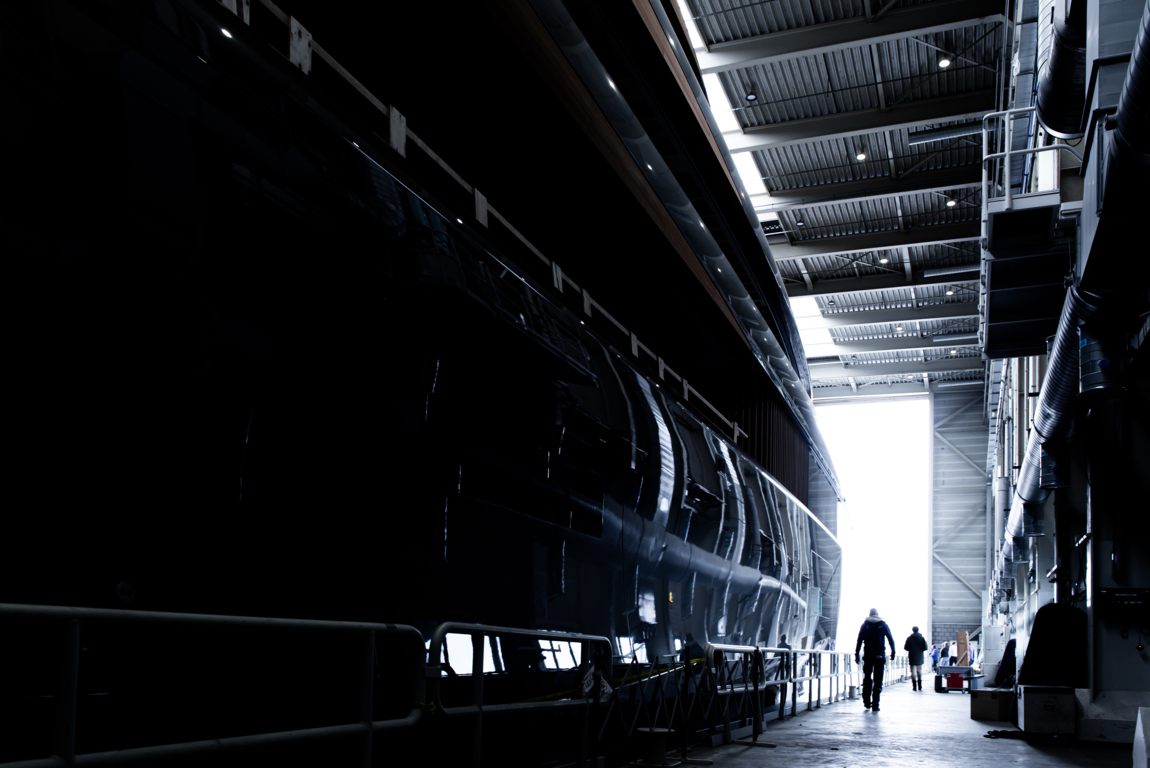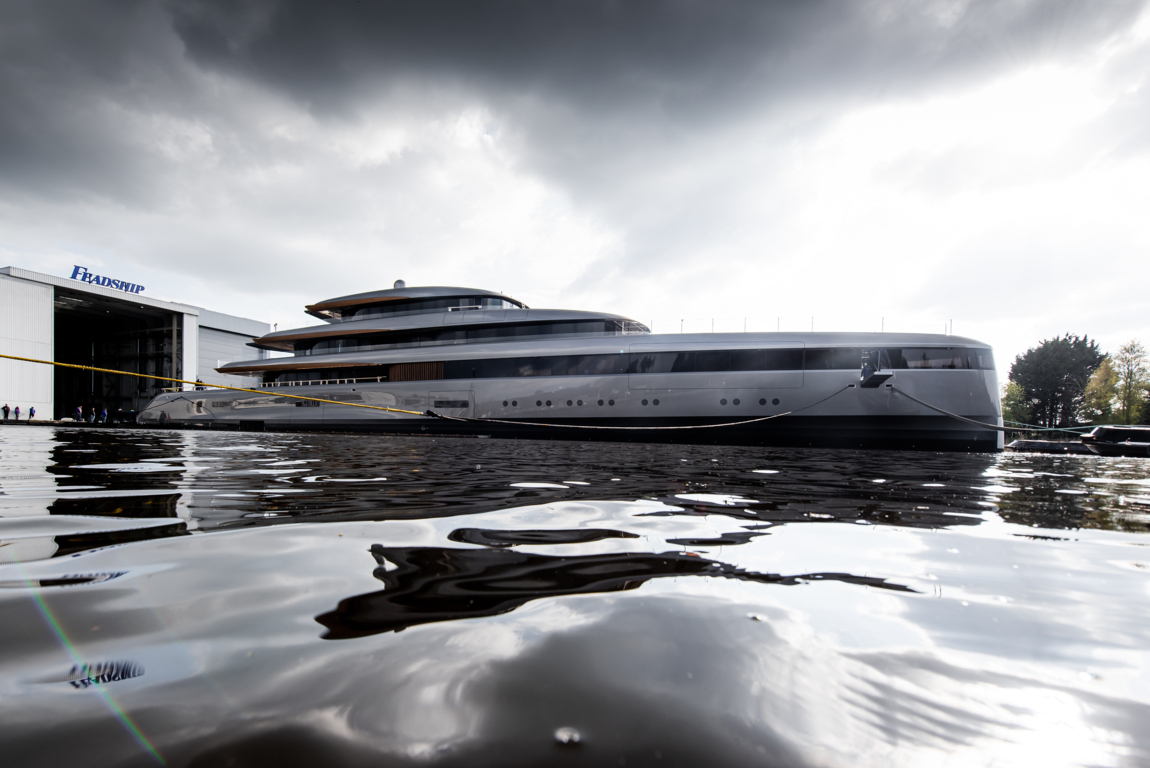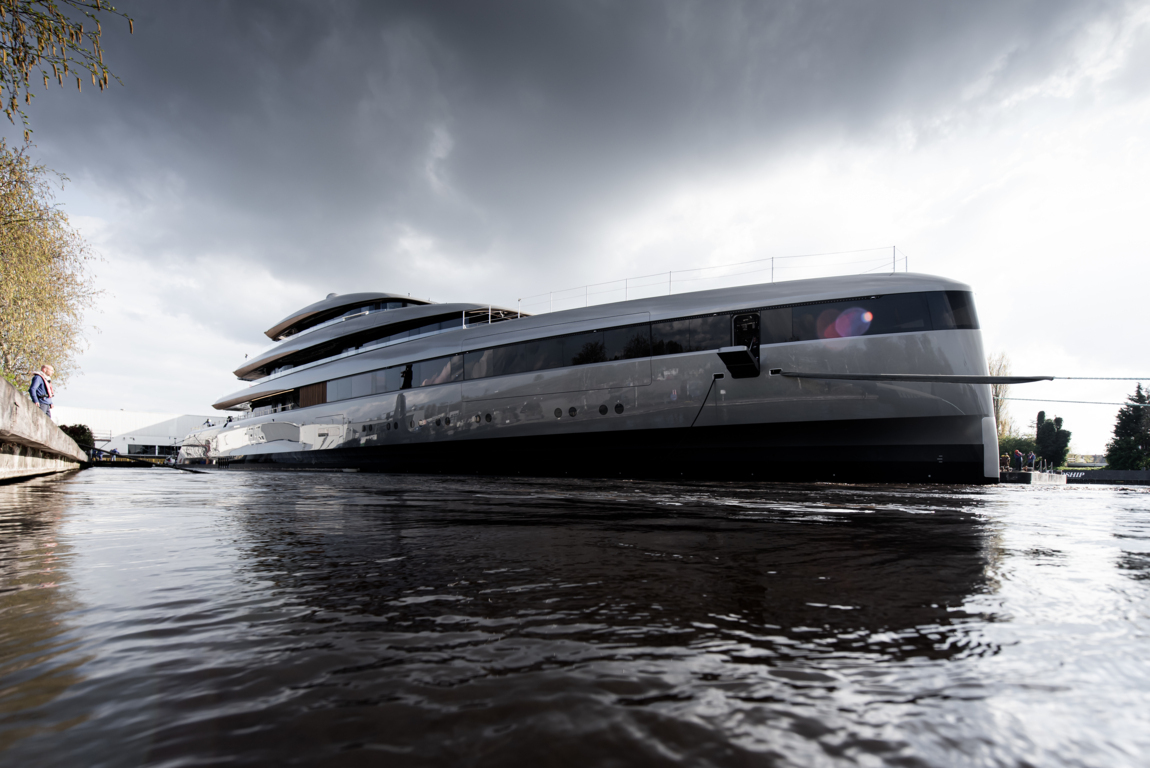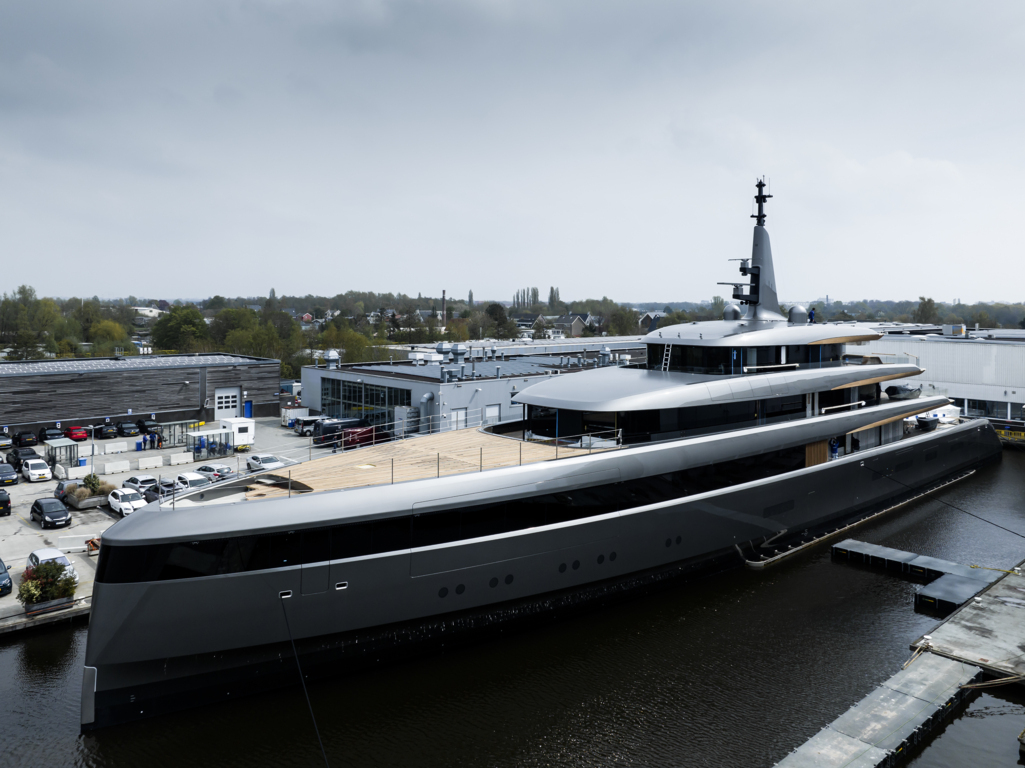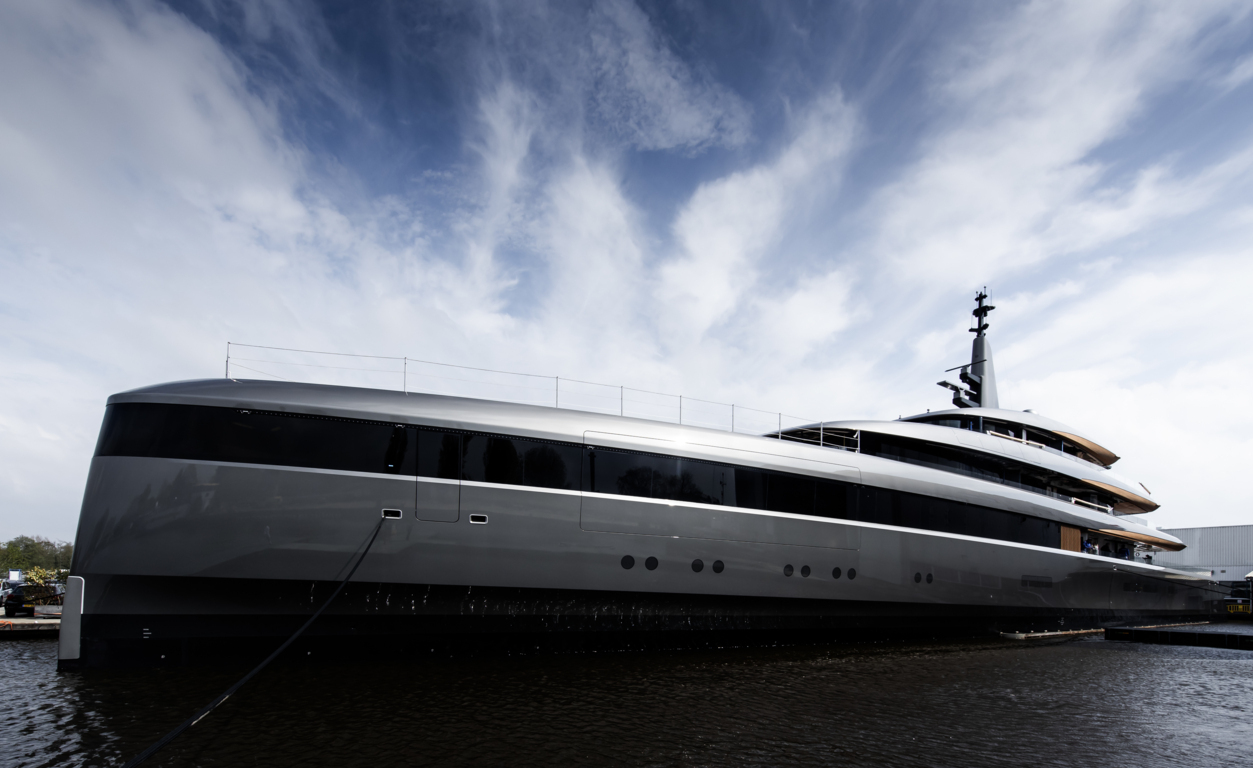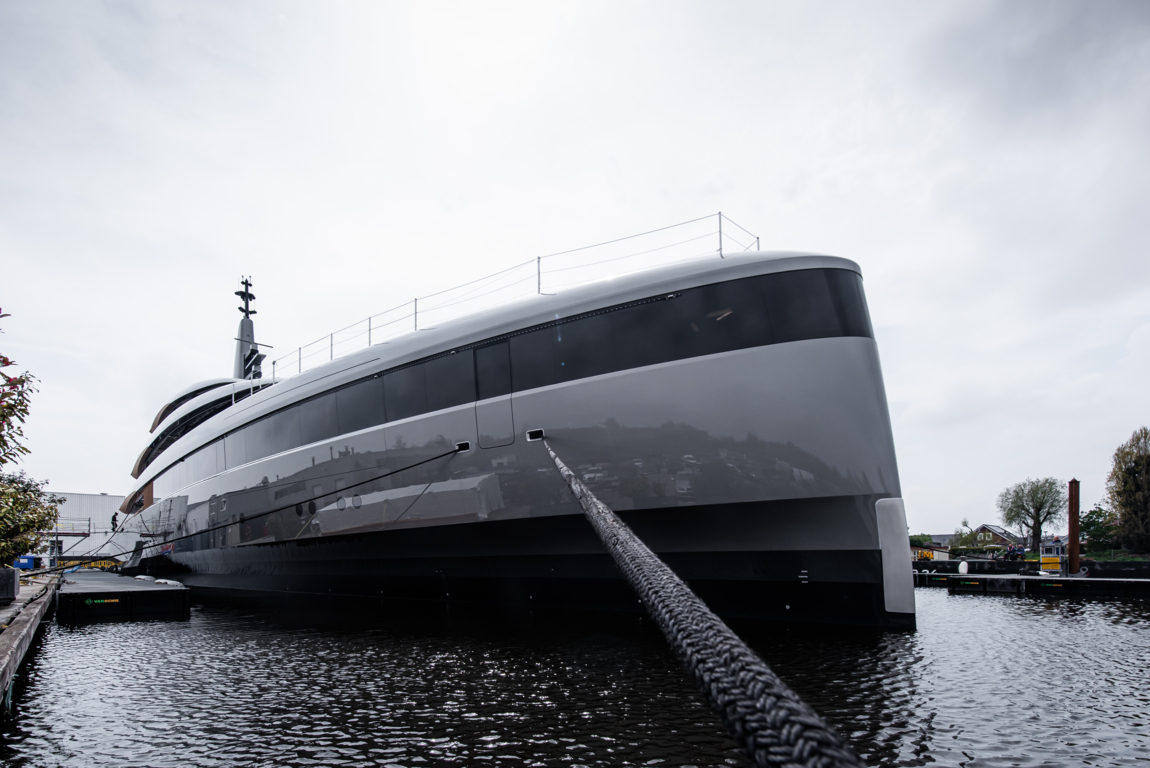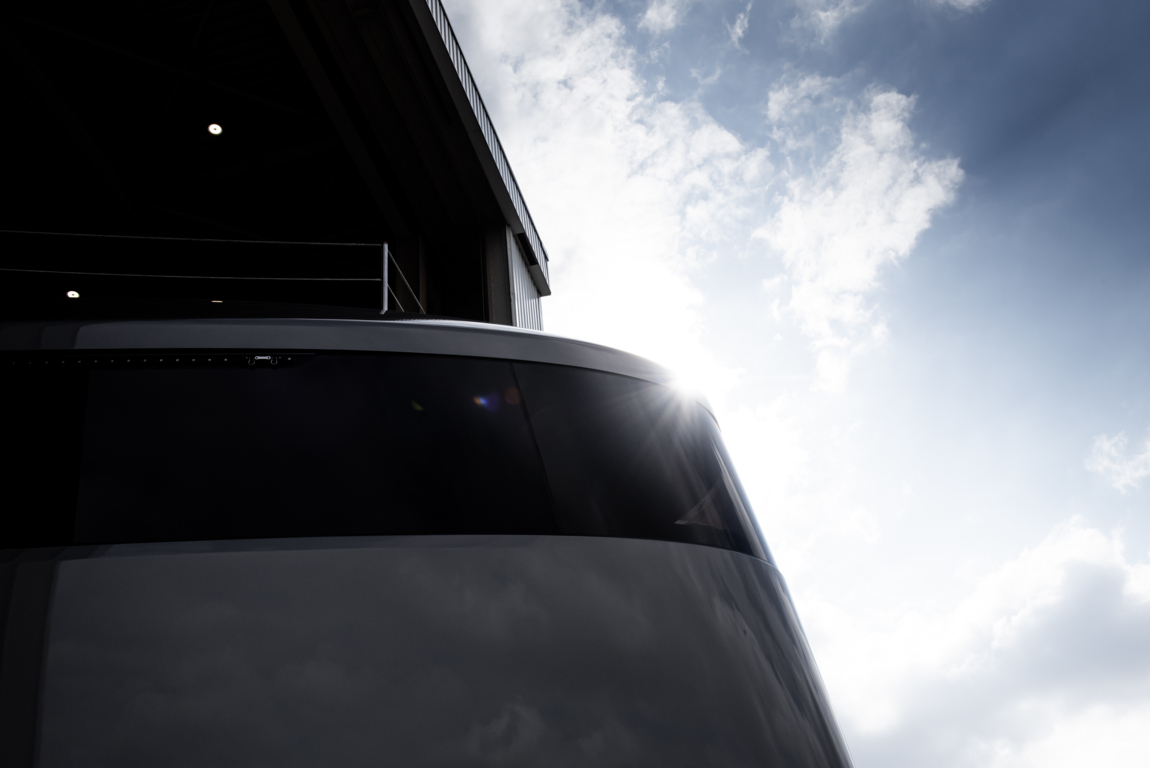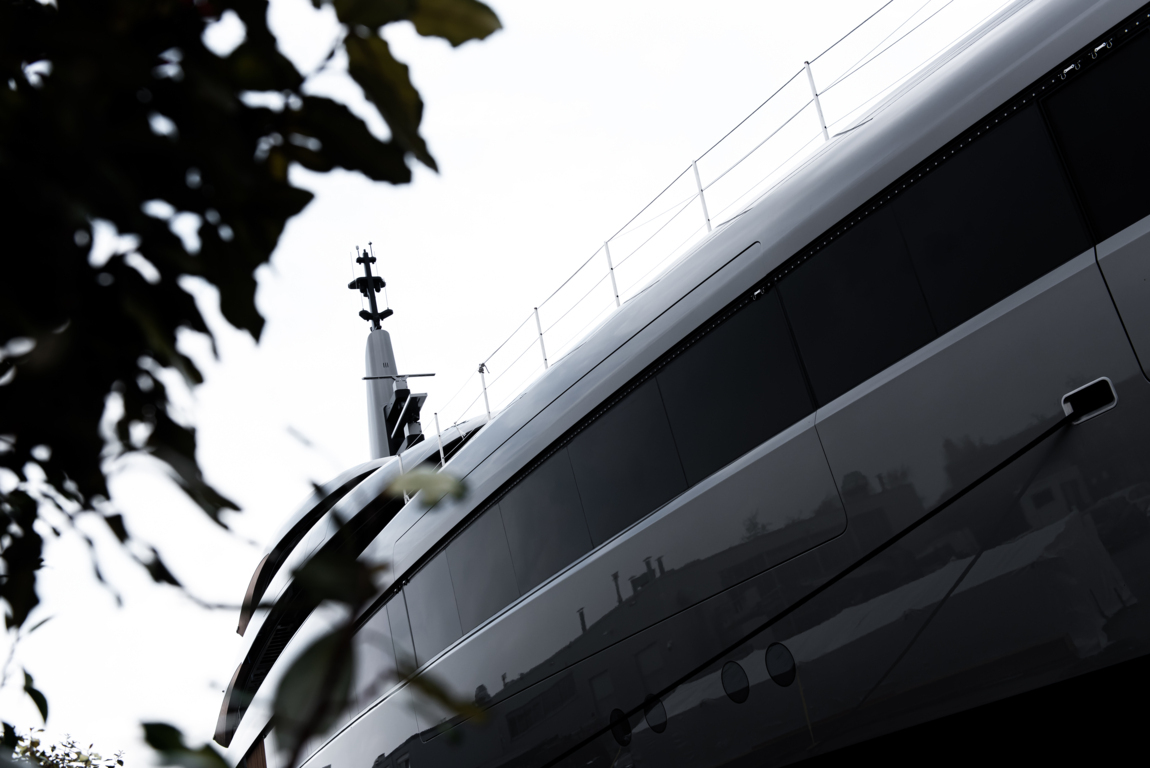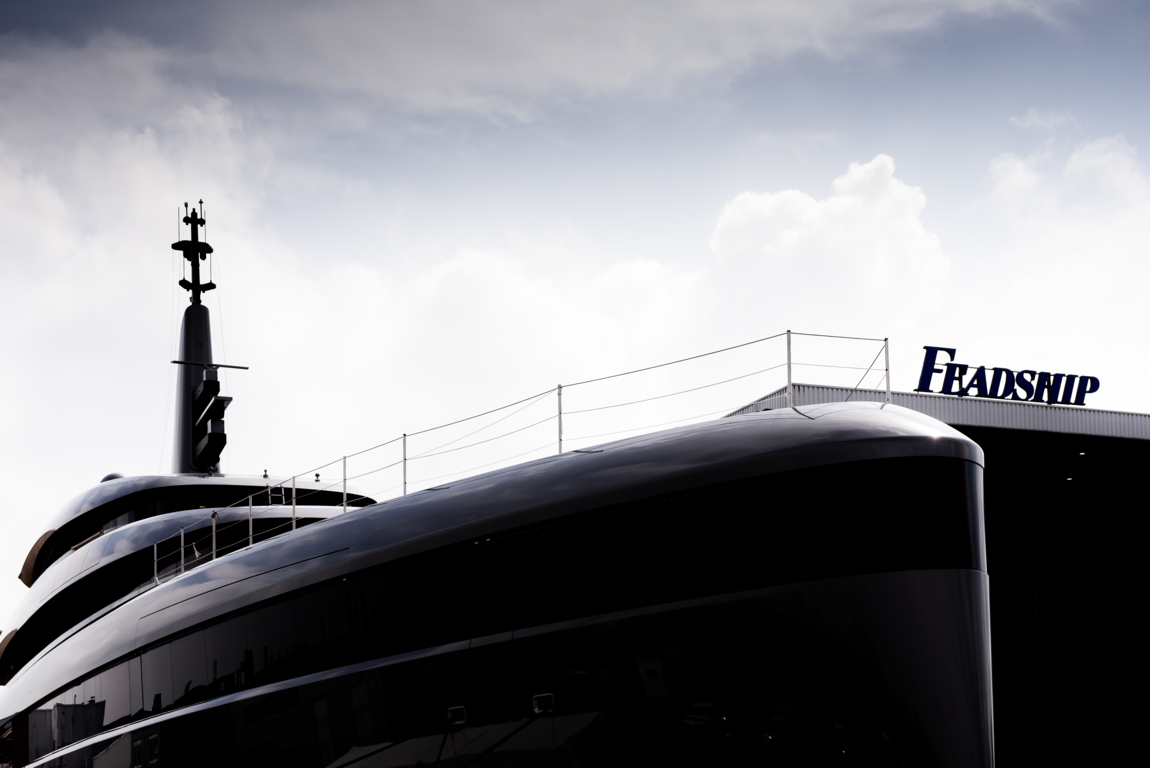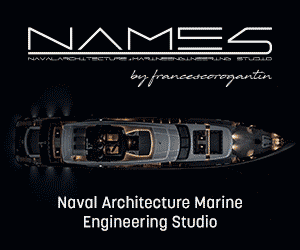Feadship’s Project 710 is in its final fitting: An 84-metre new generation hybrid
Project 710 by Feadship has left its construction hanger to be completed, before being tested in the water
Project 710 by Feadship has left its construction hanger to be completed, before being tested in the water
Project 710 by Feadship, an 84-metre megayacht, has left the shipyard’s hangar in Aalsmeer, Holland, for its final completion phase, before undergoing water testing. This new generation design, by the English studio, RWD, in partnership with MONK Design, has challenged all the design and construction methodologies experimented by Feadship until now, to create a vessel that is innovative in every way.
PROJECT 710, 84 SURPRISING METRES
The incredible length of the hull is further emphasised by its very low profile, highlighted by clean, horizontal lines, terminating in a sharply designed bow, perfect for communicating both the strength and power of Project 710. The Dutch shipyard’s novel choice of positioning the engine room on a single level, leaves space for an equally surprising interior, in line with the exterior aspect.
An asymmetrical staircase connects the main and lower decks, where the dining area overlooks a beautiful terrace, right on the water. The Aqua Lounge to the stern has large windows to look out under the water, while the day area to the bow stands out for its observation point, with full length, curved transparent walls.
The transparency, which is a surprise in a hull with such a massive presence, is one of the design layouts resolved through the use of large windows, alongside a structural workaround, like, for example, eliminating load bearing vertical supports and replacing them with cantilevered decks, so as to create an uninterrupted view of the surrounding panorama.
NEW GENERATION HYBRID
Project 710 is also one of the most important steps in the Feadship roadmap, for creating zero emission, sustainable vessels, by 2030. This new generation megayacht, thanks to its streamlined and engineered hull (optimised for cruising speed, rather than maximum speeds), its perfectly balanced weight, and hybrid propulsion, can reduce total CO2 emissions by around 90%.
It uses advanced diesel-electric propulsion that uses green generators, fuelled by HVO (second-generation biodiesel with “net zero CO2”) and much higher capacity for power accumulation compared to previously built yachts (including the shipyard’s first hybrid, Savannah). Without a transmission shaft or rudder, Project 710 moves by using a pair of electric counter-rotating Veth engines. Feadship worked together with this company to refine the computational fluid dynamics (CFD) of the propellers and other mechanical elements, so as to increase efficiency while also reducing vibrations.
Also innovative is how power usage on board is managed, in particular for all the hotel services, which are usually the main cause of fuel consumption on yachts. The Dutch engineers have created systems to recover thermal energy, from the generators, air conditioners, and even the sea, using an advanced heat pump. In this manner, a number of the systems used for on board comforts (AC system, pool heaters, hot water, pre-warming the engine) will function without costing anything.
Topics: feadship, Project 710

